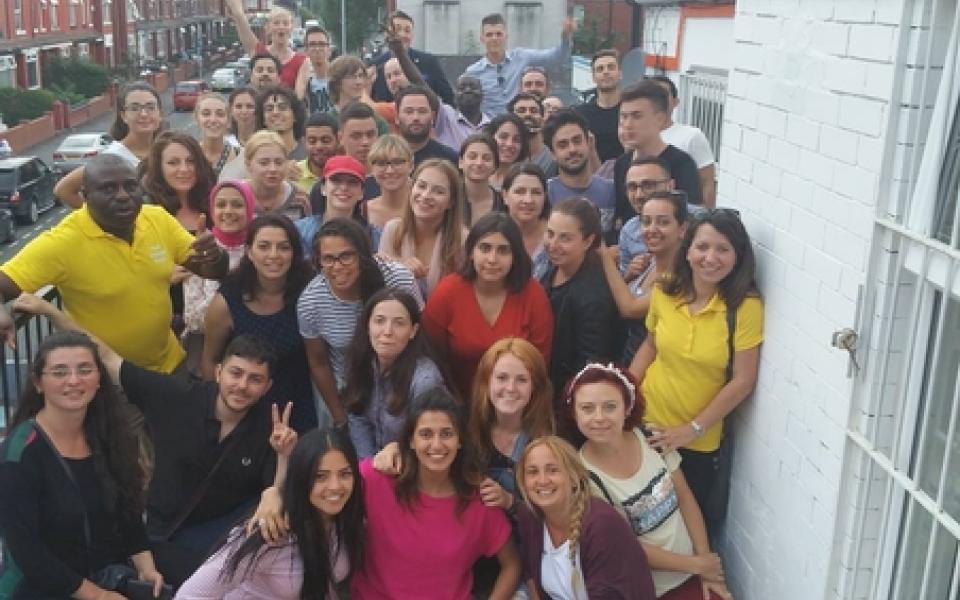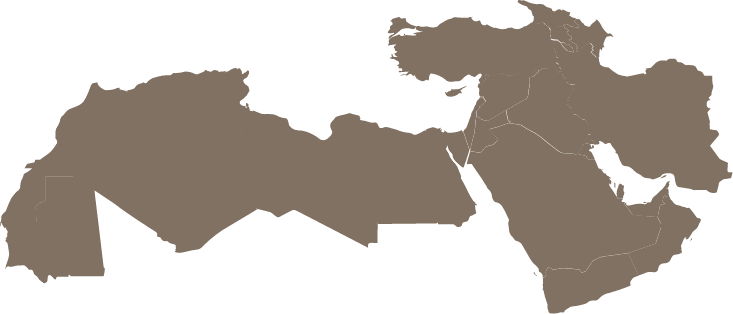
URI MENA, represented by Quested Peace CC- Jordan, participated in Youth Parliament Project (YPP), a two- year project hosted by the Vision 2020 Leadership Initiative and Erasmus+ Program aimed at encouraging youth to actively engage in the political process, citizenship, and cultural understanding. The initiative’s theme was “Creating a Sustainable Policy Process and Active EU Citizenship among Disengaged Youths”.
The project included several activities including online orientations and preparatory courses on political economy, international relations, diplomacy, foreign policy, active citizenship, social inclusion, leadership, and intercultural communication. This was followed by two weeklong face-to-face gatherings of young people and representatives of local and regional youth councils. These involved structured dialogue sessions with politicians, community leaders and the general public; campaigning, government and political simulation games; and intercultural games and activities.
The YPP initiative is meant to engage youth in decision-making process particularly when it relates to their issues. Given the rising withdrawal of young people from the formal political process, the need for this work is evident. The findings show that though young people are aware of the importance of the political process, but that they perceive few opportunities to engage effectively, summed up as ‘my vote doesn’t matter’. In many counties in the Middle East and North Africa region, the relationship between business and politics which gives rise to corruption has disillusioned many young people from viewing it as an arena for change. For example, they do not regard electoral politics as a potential arena for change due to solid partnership between business and politics which leads to resilient corruption. Such feeling was particularly apparent in the vital role of youth in the so-called Arab Spring, when many young people actively engaged in the non-violent revolution, using new technologies to mobilize societies to bring about change. Young people in MENA have demonstrated the potential to build bridges across communities, working together, helping to manage conflict and promote peace.
Some of the main topics discussed included:
- The ability of democracy to deliver its promises including meeting the expectations of the people, from security to welfare and justice. We tackled popular perceptions on security, political rights, equality before the law, welfare, justice, effective political participation, etc.
- The challenges facing youth political engagement.
- How to encourage youth participation in decision-making processes.
Some feedback from Jordanian participants in the two face-to-face gatherings:
Phase I: Youth Parliament Project (Manchester, UK)
By: Ms. Rimaz Abu-Zyad/ URI-MENA Quested Peace CC, Jordan
Date: July 17-23, 2016
The first phase included 30 participants from Jordan, Italy, Romania, Czech Republic, Turkey, and the UK, about four youth participants from each country.
Activities were aimed at enhancing dialogue and parliamentary knowledge through developing the youth participants’ communication, dialogue and debate skills. Some of the activities included:
- The Mayor of Manchester explaining and clarifying his duties.
- A political party simulation where groups identified their platform, policies, and target audience.
- Interviewing local people on their reactions and opinion regarding new political decisions.
- Participants introducing their countries, food, and music to each other.
- Cultural tour of Manchester City
- Group sports.
Phase II: Youth Parliament Project (Wales- UK)
By: Ms. Ala’ AlQtaishat
URI-MENA Quested Peace CC, Jordan.
Date: August 14-20, 2016.
Five members of Quested Peace CC represented URI-MENA in the second phase of the YPP conference, which promoted political and democratic concepts as well as enhancing personal development. The 30 participants in this session were from the same organizations that participated in the first phase. Throughout seven structured dialogue days, the participants engaged in various seminars and workshops and interacting with local communities to build on the social, local, and international concepts from the first phase. The training course has enabled the participants to better understand “Democratic Process” and “Active Citizenship” by providing them with the opportunity to participate in socio-political transformation.
The project inspired the participants to build up a constructive socio-political process based on actualizing the concepts of solidarity, active citizenship, youth activism, and engagement in the political process. The participants also developed strategies to combat obstacles of youth participation in decision-making processes, especially disenfranchisement of young people. Besides, it has fostered some of their intra and inter-personal skills like interviewing, photography, film making, and other analytical skills.
For more photos, please go here.
